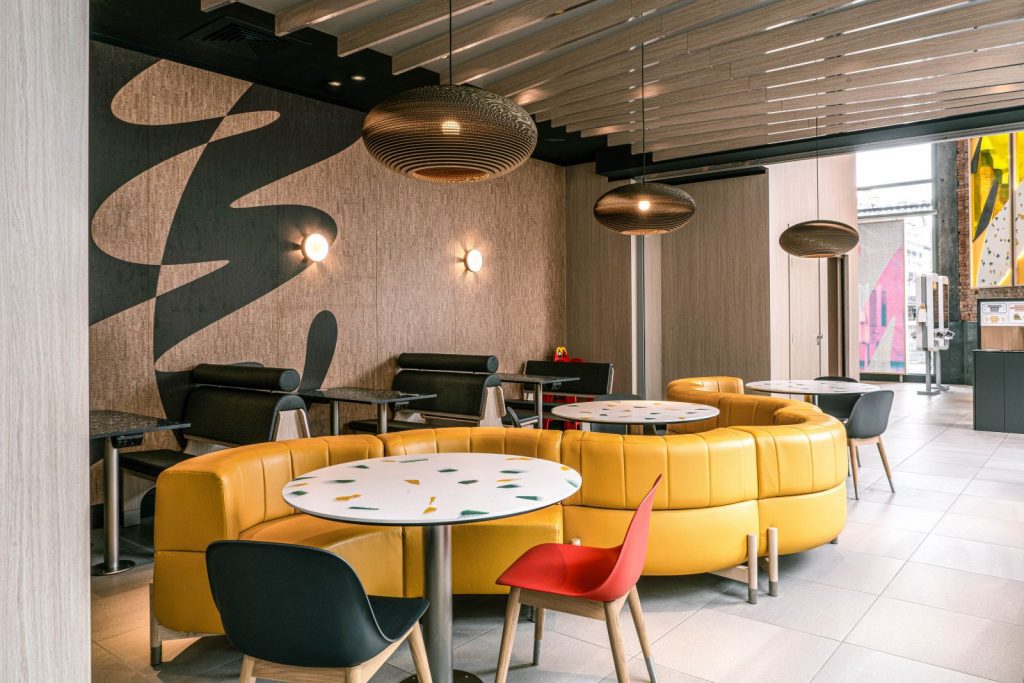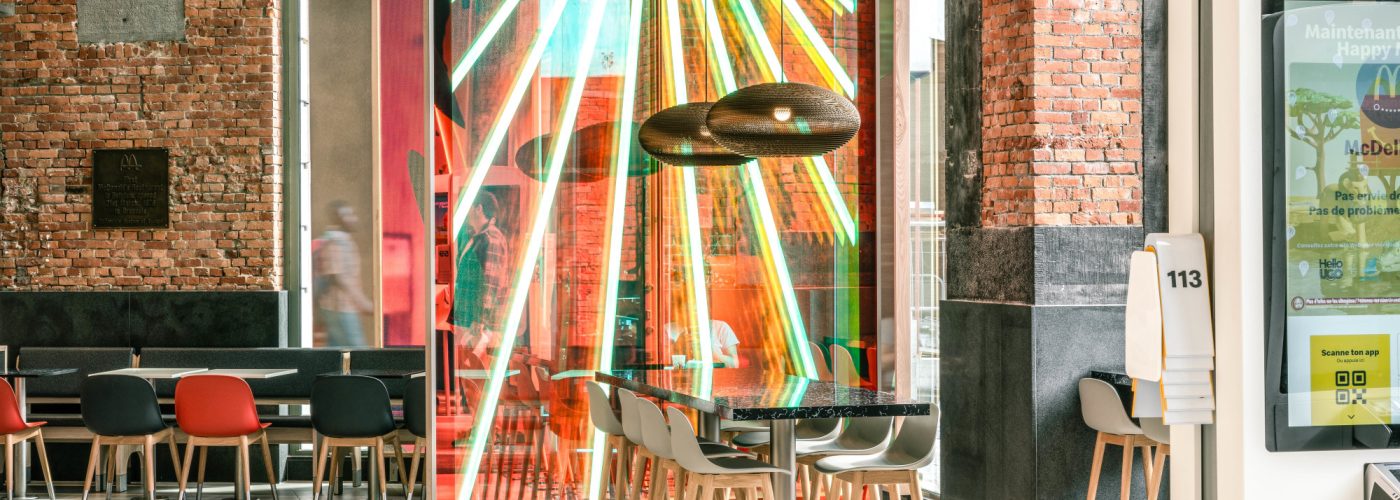The design of a McDonald’s site in Bourse, Brussels has been praised for its innovative circular approach.
As part of McDonald’s aim to become a net-zero business by 2050, the multinational fast food chain commissioned Antwerp-based design studio WeWantMore to create a sustainable design for its dining areas, with a focus on décor circularity. This refurbishment follows similar projects from WeWantMore at McDonald’s restaurants in Carbonne and La Guerche de Bretagne, France. The premise for these projects was to create a blueprint that could be scaled to other McDonald’s around the world, facilitated by a measurement index tracking the circularity of McDonald’s global restaurant décor.
The building holds historical significance as the first McDonald’s in Belgium, and it now also represents an innovative approach to sustainable restaurant design, where every aspect has been carefully planned to minimise environmental impact.
Over 80 per cent of the wood used in the project is from PEFC-certified sources, and the plastic used for tabletops and stools is largely made from recycled materials. Laminates, which are hard to recycle due to their multiple layers of composite materials, have been removed from all furniture and décor elements where possible. The lighting is energy-efficient, and the flooring and ceiling are Cradle-to-Cradle certified, allowing for easy recycling or reuse after their lifecycle.
Ruud Belmans, WeWantMore Founder and Creative Director, said, “With this concept, we want to show that sustainable design can be bold and fun while making a significant difference. The main progress was made by choosing the right materials and designing the furniture and interior elements from scratch, simplifying as much as possible.”
Looking to the future, the design is also purposely easy to disassemble. Rather than using glues, which can make materials harder to reuse, elements are held together using mechanical fixings. This means restaurant features can be more effectively broken down by raw material type, with the goal of recycling or reusing.
Stephen Douglas, Vice President, Global Restaurant Design at McDonald’s, said, “Our new McDonald’s restaurant design bridges creativity and sustainability through a focus on décor circularity, elevating the way design meets the needs of our customers and employees. Not only does the new décor have a bright, optimistic look, but the circularity principles provide a sunny outlook to the future of how we will be feeding and fostering community.”

Building, Design & Construction Magazine | The Choice of Industry Professionals





